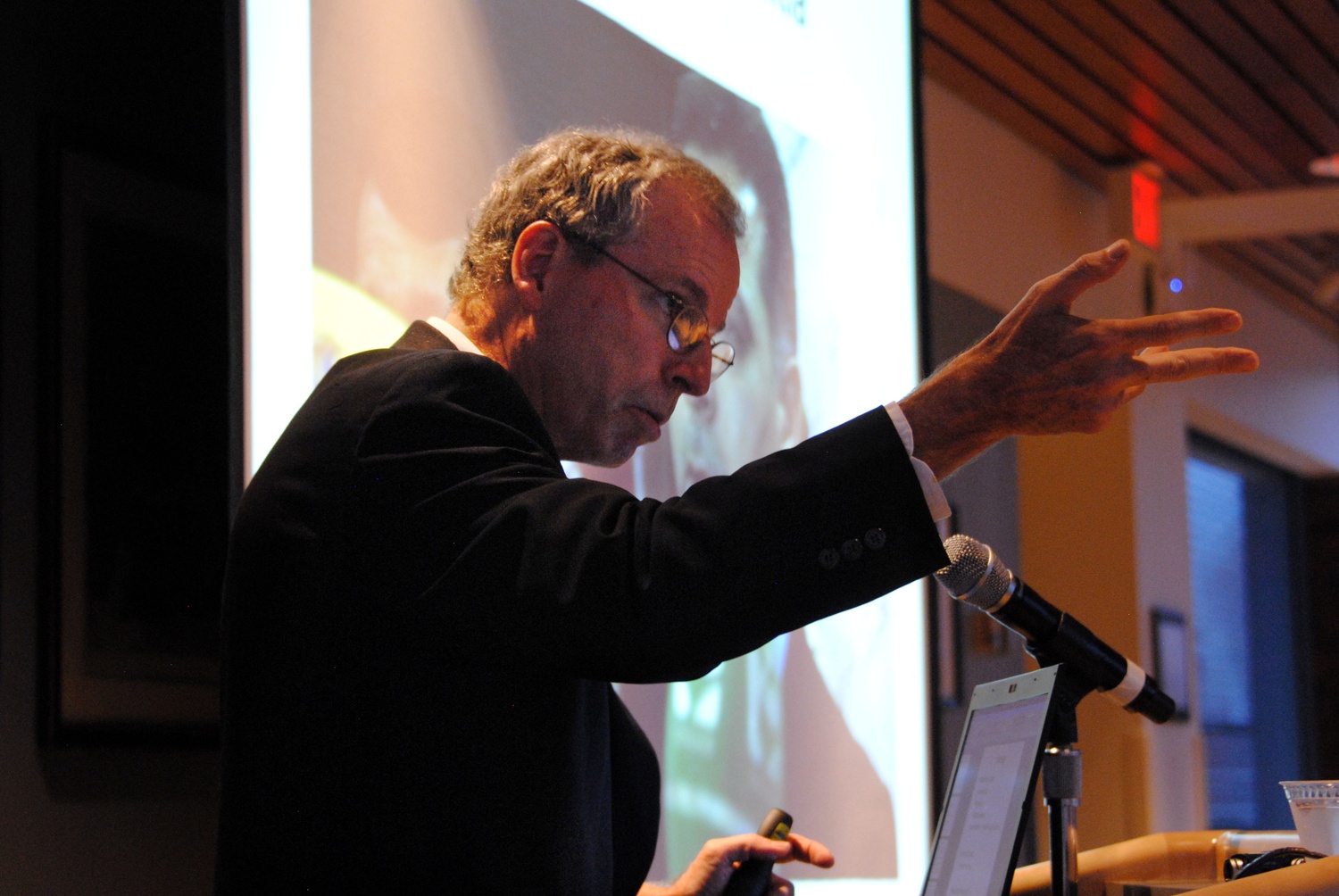
News
Summers Will Not Finish Semester of Teaching as Harvard Investigates Epstein Ties

News
Harvard College Students Report Favoring Divestment from Israel in HUA Survey

News
‘He Should Resign’: Harvard Undergrads Take Hard Line Against Summers Over Epstein Scandal

News
Harvard To Launch New Investigation Into Epstein’s Ties to Summers, Other University Affiliates

News
Harvard Students To Vote on Divestment From Israel in Inaugural HUA Election Survey
Former Ambassador to Syria Discusses Hazards, Hopes in Middle East

The United States must react to the threat posed by the Islamic State of Iran and Syria with humility and sensitivity to local concerns, the former U.S. Ambassador to Syria said Wednesday afternoon at a seminar at the Kennedy School organized by Harvard’s Middle East Initiative.
Robert S. Ford—who was recalled from his post in Damascus three years ago due to an assault by a pro-government mob—emphasized the desire for human respect motivating the tumult in both Syria and Iraq.
“This [conflict] really is not even about democracy,” he said. “What’s driving this is the demand by the population for dignity. Now, how you get there: that’s the challenge.”
During the conversation, which was moderated by Kennedy School professor R. Nicholas Burns, Ford expressed skepticism at the prospect of rallying Sunni, Shia, and Kurdish Iraqis against ISIS due to the tense and occasionally violent relations between the groups.
“With the policy to mobilize all of the Iraqis together to fight the Islamic State, there’s some big problems getting Sunnis to buy-in right now,” he said. “I am not sure [the U.S.] will to be able to do this, and certainly not without more pressure.”
As the discussion shifted to Syria, Ford was similarly pessimistic regarding the U.S.’s ability to re-orient the anti-government opposition forces to focus their efforts on ISIS instead of Syrian president Bashar al-Assad.
“The idea that the people who've been fighting Assad suddenly will be changing their mind and saying, ‘oh, Bashar is not so bad; we have to fight the Islamic State?’ That is a fantasy,” Ford said. “If given the choice between fighting the Islamic State and fighting for Assad, most of these people will join the Islamic State. That’s the grim view.”
When Burns asked whether President Obama’s vocalized goal to destroy ISIS was misaligned with the current reality of a lack of ground combat forces, Ford responded that the battle against the Islamic State would involve an ideological conflict, as well as military force.
“How do you destroy an idea? How do you destroy a movement? That’s not just a military problem,” he said.
Ford, who resigned from the ambassadorship in March due to personal disagreement with the Obama administration’s Syria-related policies, stressed that the government should proceed with extreme sensitivity given its incomplete knowledge of the situation.
“I think it’s important that we not stumble into the trap we often do of Americans making foreign policy without reference to foreigners,” he said. “I hope this administration does not forget…to address the challenge of dignity, and the challenge of hope.”
Want to keep up with breaking news? Subscribe to our email newsletter.
